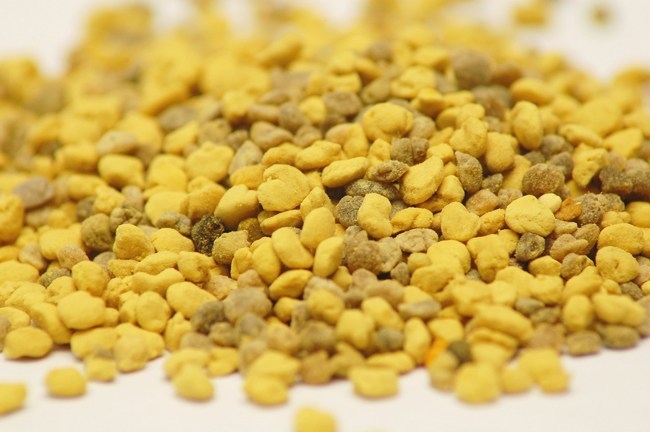
8oz Wildflower Bee Pollen - Blythewood Bee Company
8oz Wildflower Bee Pollen
Description:
Wildflower bee pollen is collected on the legs of as they pollinate various wildflowers in wide open grasslands. The composition of nutrients found in bee pollen depends on the plants where the bees gather the pollen. Since we can't control where the bees will gather, the exact composition can vary from hour to hour and day to day, so the two samples are exactly the same. The average nutrient composition of our wildflower bee pollen is 20% to 30% protein (amino acids) and 40% to 50% carbohydrates. Bee pollen has more protein per ounce than any other natural food. Bee pollen granules can be added to smoothies, mixed into granola, or eaten by themselves for a quick protein boost.
Bee Pollen Collection
As bees return to the hive, beekeepers use a pollen trap to gently brush the pollen off the bees’ pollen to fall into a collection bin. From here, the beekeeper cleans and dries the pollen at low potency and natural properties.
The beekeepers work with only harvest pollen at specific times of the year to ensure that the bees have plenty of time to store their own pollen reserves, ensuring hives can prosper.
Historical Usage
The first recorded use of bee pollen in China can be traced back to the Tang Dynasty (618 AD to 907 AD). Because of its to find and harvest during this time, consuming bee pollen was limited to Chinese nobility. China’s only female empress, Wu Zetian, was known to take bee pollen for its beneficial properties. This tradition lives on today, and many Chinese people have integrated bee pollen into their daily routines. Today, China is the largest producer of bee pollen in the world.

The Greeks, Egyptians, and many other ancient cultures all knew the power of bee pollen. Hieroglyphs describe the taste of honey and the importance of pollen, and Cleopatra herself was reported to use honey and bee pollen as part of her beauty regimen. Thanks to the high amount of protein in bee pollen, Greeks would use bee bread to keep their armies well-fed on long journeys.
Note: This product does not contain any of the 8 major allergens. In rare cases bee products may cause allergic reactions in some people. This product is manufactured in accordance with all Federal, State, and regulatory guidelines and is in full compliance with Dietary Supplement regulations.


